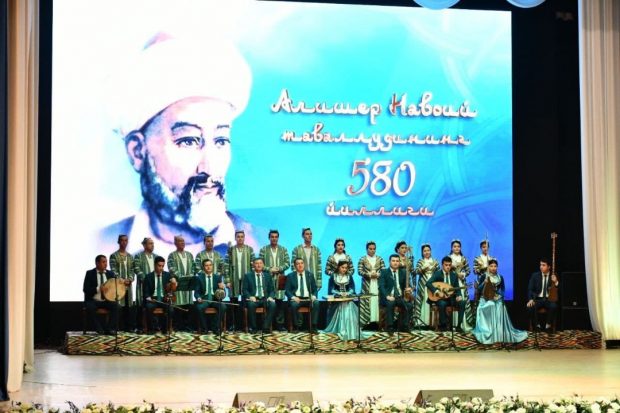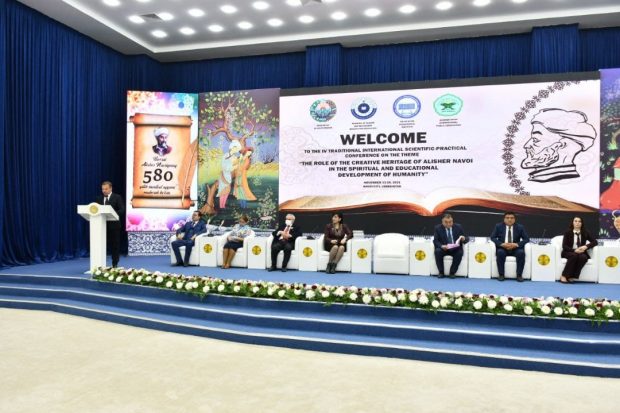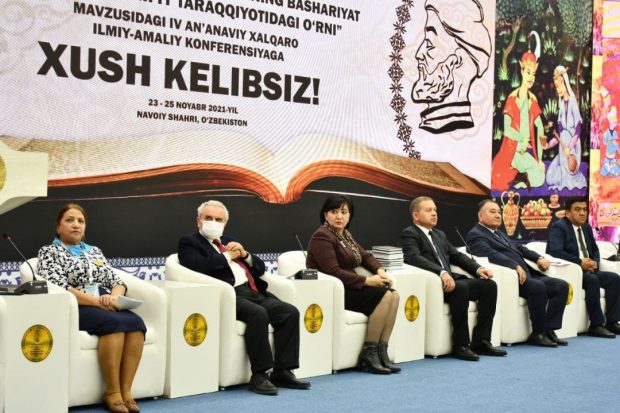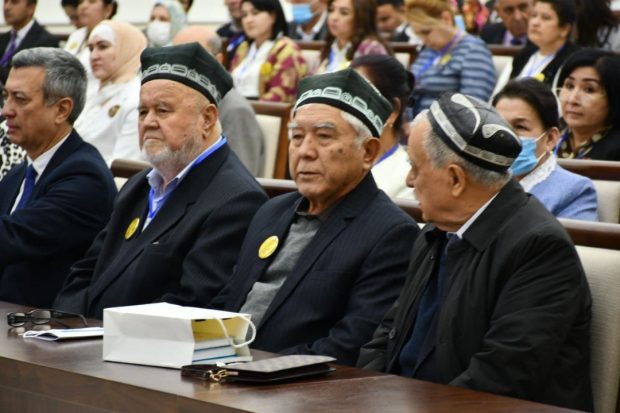
Global scholars discuss significance of great Uzbek poet Navoi’s literary heritage

By Dilmurod Jumaboyev
Editor-in-chief of Vodiymedia.uz
TASHKENT” The fourth Traditional International Scientific Conference on the theme “The role of Alisher Navoi’s creative heritage in the spiritual and educational development of Humanity” took place on November 24-25 in Navoi city, Uzbekistan.
The meeting was attended by more than 70 scientists from the United States, Canada, South Korea, Russia, Turkey, Azerbaijan, Kazakhstan, Iran, Mongolia, Tajikistan and several other countries, as well as well-known academics and professors, creative intelligentsia invited from all regions of the country.

In panel discussions the global scholars had the opportunity to exchange views on socio – political ideas of Alisher Navoi, humanistic, religious and mystical significance of the literary heritage of the great thinker.
Extant literary heritage of Alisher Navoi is large and varied – nearly 30 books of poetry, poems, scientific works and poetic treatises that fully reveal the spiritual life in Central Asia at the end of 15th century.
Alisher Navoi’s work is based on the rich literary traditions of Eastern literature and, in turn, has had a significant impact on the development of later literature.

The history of Oriental art cannot be imagined without the works of Alisher Navoi. His lyrical legacy is a continuation of Persian-Tajik and Turkish poetry, as well as the pinnacle of Uzbek poetry of all time. The sensitive poet, who was able to create high-quality works of art in two languages, made a great contribution to the development of poetry of that time with his forty-five thousand lines of poetry in Turkish and more than twelve thousand lines of Persian-Tajik poetry.
In his works, Navoi pointed out that all people are equal to each other from birth, regardless of whether it is a ruler or a simple hard worker:
“Like everyone, you are dust and doomed to the earth,
Like everyone else, you are a bunch of darkness, not light in the darkness.”
And therefore, calls on rulers, government officials, and rich people to help people with low incomes in every way, he encouraged generosity and patronage in every possible way. Generosity is, according to Navoi, “the stormy sea of the land of man, or rather, the precious pearls of the bottom of the sea.”

Alisher Navoi called on all nations to live in peace and mutual understanding, he often acted as a diplomat, reconciling fathers and sons, mired in long wars in the struggle for the throne. The boundless love for his people and homeland did not in the least prevent the poet from treating other peoples with great respect and warmth. He glorified and glorified friendship between nations regardless of where they live, what language they speak, what race they belong to, and what their religion is. He believed that this friendship enriches, ennobles peoples:
“Understand, people of the whole earth: enmity is a bad thing,
Live in friendship with each other – there is no better destiny…”


